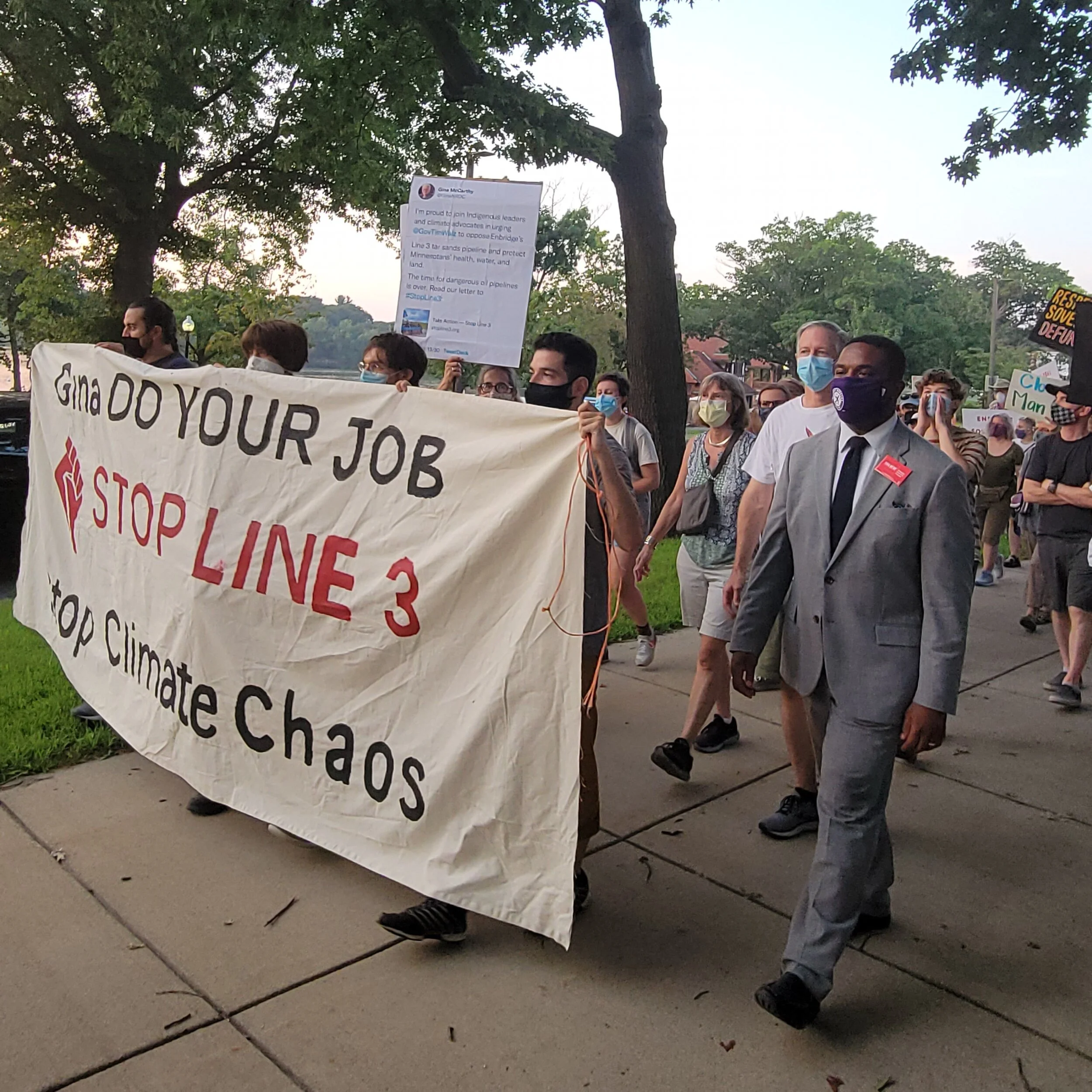Environmental Justice & Climate Action
The impact of climate change has created tremendous effects on how we live, where we live, and what we can do as a city. Addressing this existential threat must be incorporated into every policy area tackled at City Hall. As a highly vulnerable coastal city, Boston can only successfully navigate the future of our environment by implementing comprehensive, innovative, and durable solutions.
David marching with climate justice activists in Jamaica Plain to oppose the Line 3 pipeline.
As City Councilor, I will:
Pass a Boston Green New Deal
Advocate the Green New Deal locally, and provide real-world reference points to support its adoption at the federal level, by incorporating environmentalism into all possible policy areas.
Support fare-free public transit to reduce the number of passenger vehicles on Boston’s city streets.
Work to accelerate achievement of the goals of the Carbon Free Boston plan prior to 2050 through strategic investment and adoption of best practices/innovation in carbon reduction strategies, such as the full electrification of the city’s vehicle fleet – including school buses.
Increase public access to green spaces by protecting existing urban wilds and working to improve the tree canopy citywide, but with a particular focus on environmental justice neighborhoods. Using these techniques to address current disparities in the presence and intensity of heat islands, and their overall impact on quality of life for residents.
Address environmental racism and invest in neighborhoods affected by air pollution, flooding, and heat islands, including pushing for a rapid expansion of our urban tree canopy.
Ensure that environmental justice concerns are a central part of the proposal, execution, and analysis of all efforts oriented towards environmentalism and climate change action. While Boston as a whole must have a plan to address these issues, those in office must acknowledge the reality that the challenge is not the same for every community - and the solutions must be tailored to match those differences.
Advocate for Clean and Green city purchasing and investing
Use environmental impact metrics as a key assessment criteria for city procurement decisions. This would allow Boston to use its millions of dollars of purchasing power to support more environmentally responsible vendors, providing them with both revenue and incentive to compete in the market in this way.
Push the Boston Retirement System to increase investment efforts of its multi-billion dollar portfolio oriented at achieving a “double bottom line” return on investment. This would prioritize both sound financial returns to support retired city employees, as well as leveraging investment vehicles that have a positive environmental impact addressing the existential threat of climate change.
Ensure environmentalism and climate change are key aspects of BPS curriculum
Reorienting Madison Park Technical Vocational High School towards being a national leader in the development and delivery of comprehensive, green vocational education. Creating a 21st Century skilled labor force to engage with 21st Century jobs and challenges. Students should be given practical experience in applying the latest green building techniques by working to make energy efficiency upgrades to affordable housing units across Boston and for residents of environmental justice communities in the city who do not have the resources to afford such upgrades on their own.
Increase environmentalism in Boston Public Schools by ensuring that robust environmental education, in all district schools, must be a foundational element of the BPS curriculum. Students must not only be taught basic environmental science, but also given ways to actively apply these lessons to analyses of their home neighborhoods through the lenses of environmental justice & environmental equity.
David has also refused all contributions and the fossil fuel industry and their corrupt lobbyists by signing the Sunrise Movement’s No Fossil Fuel Money Pledge (signed Feb 2020).




